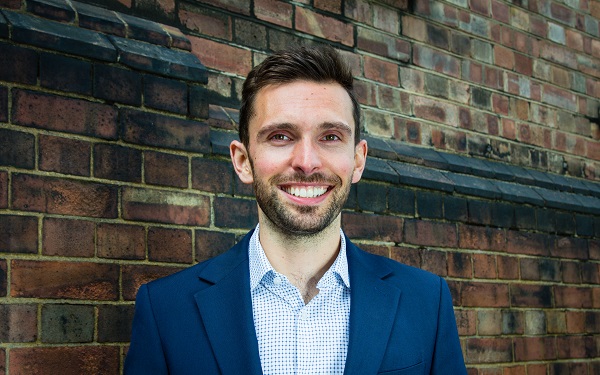
Care review lead Josh MacAlister has been appointed to co-lead a new merged evidence body for children’s social care and early intervention with children and families.
The ex-Frontline chief executive will become executive chair of the organisation merging What Works for Children’s Social Care and the Early Intevention Foundation (EIF) in December. The EIF’s chief executive, Jo Casebourne, will take on the same role in the new body, whose working title is What Works for Early Intervention and Children’s Social Care and which will be established during the winter.
MacAlister is currently working as an adviser to the Department for Education on the implementation of the Independent Review of Children’s Social Care, which he led and delivered its final report in May. The DfE is due to announce its response to this review, and those of the Competition and Markets Authority into the children’s social care market and the Children’s Safeguarding Review Panel into the murders of Arthur Labinjo-Hughes and Star Hobson, by the end of the year.
‘A great privilege and a huge opportunity’
Commenting on his appointment, he said: “It is a great privilege to take up this role, and a huge opportunity. Very many important decisions about the new centre, its strategic priorities and its work lie ahead. I am looking forward to working with partners across early intervention and children’s social care to make sure the new organisation serves and supports professionals and services providing help to children and families, at a national and local level.”
More on the care review
Funded by the DfE, What Works’ role is to identify evidence for what contributes to improved outcomes for children in the social care system, through carrying out its own research, and synthesising and disseminating others’ findings. Set up in 2013, the EIF performs a similar role in relation to the evidence on intervening early to improve the lives of children and young people at risk of poor outcomes. It is mostly government funded.
Both organisations carried out research and provided evidence to the care review, which recommended their merger due to their “very significant overlaps”. This was also in line with the review’s key recommendation to set up a “family help” service, in effect merging targeted early help provision with child in need services.
Merged body ‘better placed to support care review reforms’

Jenny Coles
The two organisations’ boards of trustees agreed the merger in July. In a blog post setting out the reasons at the time, What Works chair Jenny Coles, formerly director of children’s services at Hertfordshire council, said: “As a single organisation, we will be better placed to support the direction of travel following the Independent Review of Children’s Social Care and the ambitions to bring together and strengthen direct support available to families across the early help and social work systems. Our merged organisation will be able to support the reforms ahead and help create a system that is both evidence-based and evidence-generating.”
Following her appointment to lead the merged body, Casebourne, chief executive of the EIF since 2017, said: “I know there is a firm commitment across the early intervention and children’s social care community to ensure that the system makes a difference for children, and we have an exciting opportunity to help shape and support that wider system as it evolves. As a trusted and independent source of information and guidance for practitioners, and a critical friend to those who are making crucial decisions about investments, policies and programmes, we will work to ensure that the lessons from evidence and research are an essential part of how support for families and children is designed and implemented.”




 Family help: one local authority’s experience of the model
Family help: one local authority’s experience of the model  ‘I spent the first three months listening’: how supportive leadership can transform children’s services
‘I spent the first three months listening’: how supportive leadership can transform children’s services  How senior leaders in one authority maintain a culture of excellence
How senior leaders in one authority maintain a culture of excellence  How staff support ensures fantastic outcomes for children and families
How staff support ensures fantastic outcomes for children and families  Workforce Insights – showcasing a selection of the sector’s top recruiters
Workforce Insights – showcasing a selection of the sector’s top recruiters 

 Facebook
Facebook X
X LinkedIn
LinkedIn Instagram
Instagram
This is how nepotism works.
It would be interesting to see the recruitment process.
Here it is: ” Quick word Josh”
“Ofcourse Minister”
“Got a new job for you”
“Tank you Minister”.
Social work has truly lost its way. Where is BASW?
Yes they seem to be so very quiet in these times! No representation following all the negative news coverage
Never been a social worker. Never been involved in social care. Brief stint as a teacher now a great expert. It’s like emperors new clothes. Who on earth in dfe actually thinks this is a great criteria. Here we have a copy of the teacher fast track scheme sold to introduce frontline. Has it solved recruitment and retention ? No. Has it improved social work credibility? No. Is it cutting corners? Yes. Is it proven to improve practice? No. So here we go again ….
Exactly! I am concerned about why this person is being appointed I don’t think he has proven himself.
Totally confusing early help and early intervention…they are not interchangeable words….. please review the terminology used